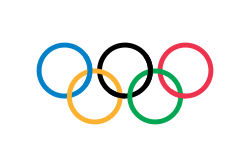| Mixed-NOCs participation at the Youth Olympic Games | ||||||
|---|---|---|---|---|---|---|
| ||||||
| At the 2012 Winter Youth Olympics in Austria | ||||||
| Medals | Gold 3 | Silver 3 | Bronze 3 | Total 9 | ||
The medal count above include those won at events where all participating teams were mixed-NOC teams. Contents | ||||||
Teams made up of athletes representing different National Olympic Committees (NOCs), called mixed-NOCs teams, participated in the 2012 Winter Youth Olympics . These teams participated in events composed entirely of mixed-NOCs teams. When a mixed-NOCs team won a medal, the Olympic flag was raised rather than a national flag; when a mixed-NOCs team won gold, the Olympic anthem would be played instead of national anthems.
